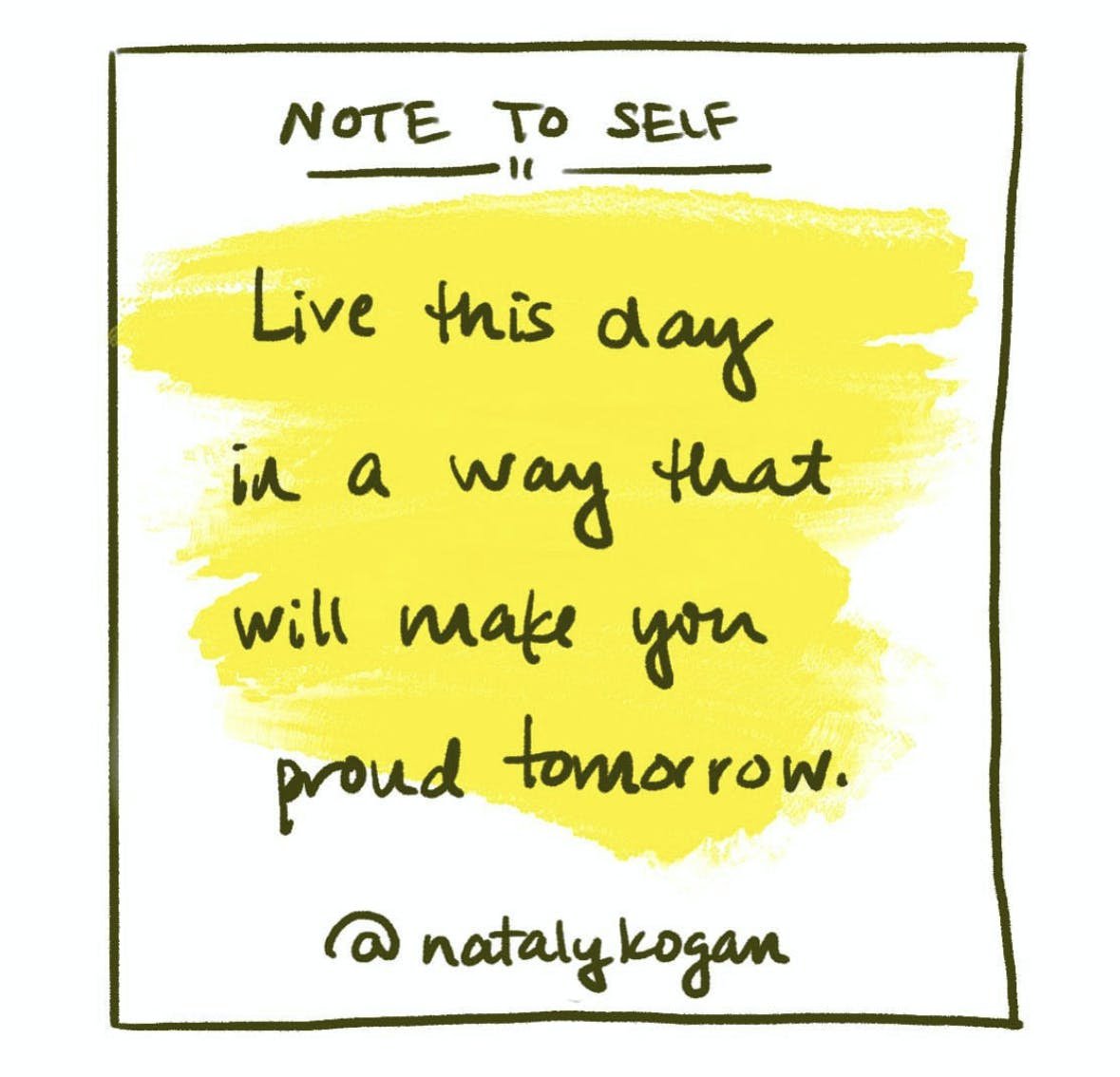


Hi, my name is Nataly, and I’m the CEO of Happier, a company whose sole mission is to help millions of people become happier in their daily lives.
I am also a recovering happiness skeptic.
And by recovering I mean that even after reading hundreds of research studies and seeing the amazing impact that becoming more positive has had on my own life and the lives of hundreds of thousands of people who have used Happier, I often have to contend with a healthy dose of my entrenched skepticism about happiness.
At a talk I gave recently I mentioned this to the audience and it turned into one of the most fascinating, revealing, and inspiring Q&A sessions I’ve ever been part of. So I decided to kick off a series of articles titled Confessions of a Happiness Skeptic.I think there's a happiness skeptic in all of us and I think it’s that skeptic that may be our biggest obstacle to learning how to be happier and becoming happier and creating more joy in our lives.
So here we go. Confessions of a Happiness Skeptic, Part 1:
I’m just not made to be happy.
This might be one of the most common things I hear from people whenever I start talking about happiness. It’s like this immediate knee-jerk reaction, which usually comes with a wave of the hand, a slight tilt of the head, and all sorts of other body language that says: “I'm totally rejecting everything you’re talking about right now.”
I can absolutely relate. For a long, long time I assumed that I was just not the kind of person who could be, you know, happy. I had a bajillion really well thought out reasons for why I believed this to be true:
- The women in my family are not very happy.
- I come from a culture (Russian Jews) where being happy is not just not a goal, but something that is often looked down upon.
- I went through a really traumatic experience when my family immigrated to the U.S. from Russia and while I tried for a while, there was no way I was going to get all that suffering out of my system.
(Believe me, I can keep going. It's a really long list.)
I got really used to this “happiness is not for me” label, and even as I read tons of research showing that genetics only account for about 50% of your happiness set point, stuck to it. It became part of my story -- the kind of stories we tell ourselves about who we are, what we're meant to be, how others perceive us – the stories which are rarely true, but that become very powerful the more we repeat them.
What’s more, even as I started doing simple things I learned from the research to try and feel happier – writing down a few good things about my day, investing more energy into spending time with people I love and being nicer to strangers, practicing mindfulness through yoga and walking meditation – I maintained that they were never going to work. Why? Because my story of me was that I wasn’t someone who could ever be happy.
There was another element at play: the way I thought about happiness. This will sound naïve but from talking to literally thousands of people over the last few years I realize I wasn’t the only one with this idea of happiness as some permanent state of euphoria. And since I never felt that – because it’s not humanly possible to only feel one kind of emotion – I figured happiness was out of the question.
Thing is, I did start to feel a lot happier after spending a year doing a lot of the small things research shows will make you more positive. I did learn how to manage my stress better and how to prevent the bad days from spiraling into awful days and lasting for weeks – I know you know what I mean by that, it’s so easy to let that happen. And after a while, I had to face my story of myself as someone who can never be happy and admit I was wrong. It did take redefining what happiness means – less a state of endless euphoria, and more a collection of small happy moments which I savor and appreciate vs. take for granted as I chase some non-existent BIG HAPPY. But the most significant thing it involved was telling my inner happiness skeptic to pipe down, at least long enough to actually do a few things that science says will make me feel better.
Which is what I hope reading this inspires you to do: However vocal your inner happiness skeptic might be, I hope you'll commit to doing a few things every day that thousands of scientific studies show will help you maintain a more positive attitude, feel more optimistic, and yes, become a happier person. Think of it like a challenge, a game – can you win over the skeptic, even for a bit?
Don't miss your happier boost!
Subscribe to our weekly email to get practical tips and inspiration to help you feel more joyful and resilient.


